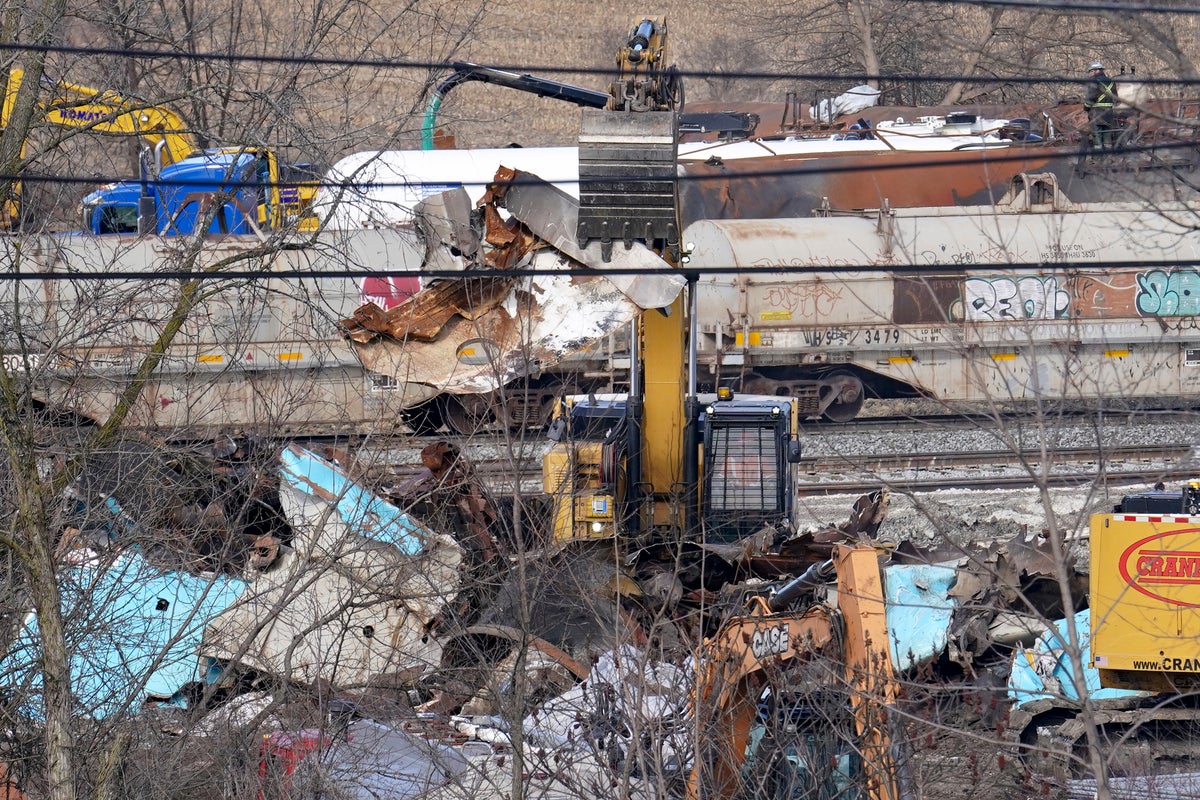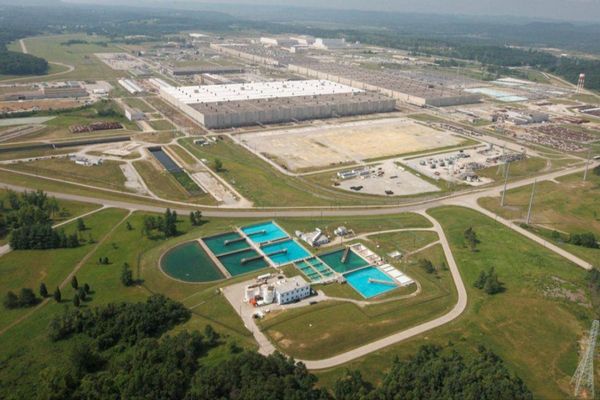
Nine of the dozens of chemicals released in East Palestine following a train derailment last month are in a higher concentration than would normally be found in the area and could impact long-term health of residents, scientists believe.
Norfolk Southern, the company whose train had derailed on 3 February, began moving contaminated materials out of East Palestine on Monday to a number of locations across the US after concerns emerged this weekend about oversight.
The release of chemicals in the area is being monitored by the federal Environmental Protection Agency (EPA).
A group of scientists from Texas A&M and Carnegie Mellon University said if the levels of some of these chemicals remain high, they could pose challenges to residents’ health in the long term.
“It’s not elevated to the point where it’s necessarily like an immediate ‘evacuate the building’ health concern,” Albert Presto, an associate research professor of mechanical engineering at Carnegie Mellon’s Wilton E Scott Institute for Energy Innovation, was quoted as saying to CNN.
Dr Presto is working on the university’s chemical monitoring effort in East Palestine.
“But, you know, we don’t know necessarily what the long-term risk is or how long that concentration that causes that risk will persist.”
The scientists’ analysis has found that the highest levels were of a chemical called acrolein, a herbicide used to control plants, algae, rodents and microorganisms.
It is a toxic chemical that can cause inflammation and irritation of the skin, respiratory tract and mucous membranes, according to the US Centers for Disease Control and Prevention.
Officials have, however, said tests in the area have shown that the chemical levels are not concerning.
An EPA spokesperson said to CNN that the agency’s air monitoring data showed levels of monitored chemicals “are below levels of concern for adverse health impacts from short-term exposures”.
“The long-term risks referenced by this analysis assume a lifetime of exposure, which is constant exposure over approximately 70 years. EPA does not anticipate levels of these chemicals will stay high for anywhere near that. We are committed to staying in East Palestine and will continue to monitor the air inside and outside of homes to ensure that these levels remain safe over time.”
On Tuesday, solid waste started being shipped to a nearby incinerator with a “long history” of environmental violations in East Liverpool in Ohio.
It is unclear what toxic substances are in the solid waste being shipped there.
Dr Ivan Rusyn, director of the Texas A&M University Superfund Research Center and part of the team that did the analysis, said authorities need to communicate with the public on the implications of their findings.
“The situation has to be monitored, and the EPA should continue measurements, and they should also communicate to the general public as to what they’re seeing and put this into context of risk, rather than use the numbers and expect people to figure it out for themselves,” he said.







